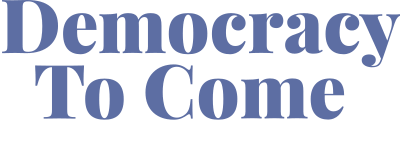One of the central challenges of being an academic is attempting to translate what we write about in our publications into some kind of meaningful change in the world. Obviously not every publication is intended to change the world – we often write extremely valuable conceptual papers that contribute towards an ongoing conversation in our field of study – but I think most academics would want at least some of their work to make a difference. To avoid looking back over a long career and pondering: “Did anything I write ever really make a difference on organisations or workers lives within them?” UK academia has, over the past decades, tried to encapsulate (and even commodify) this desire to “make a difference” under the broad umbrella of research impact, but we might also think of other less loaded (or vomit-inducing) terms like engaged scholarship or outreach that also reflect this attempt to bridge the gap between research conducted in universities and those who might find it beneficial, inspiring, or maybe just even interesting.
Scholars from my own sub-discipline (Critical Management Studies or CMS) have over the past few decades wrestled with the challenges of engaged scholarship. Early CMS scholars tended to take the view that to maintain a critical perspective on organizations and actors within them, there was a need to retain a critical distance when working with them and so avoid working to provide possible answers or solutions to issues, instead seeking to problematise and provoke. In 2008 a “practical turn” in CMS through a highly influential publication by Andre Spicer, Mats Alvesson and Dan Karreman sought to introduce “critical performativity” to the lexicon of CMS scholars. In this paper they suggested that “the central task of CMS should be to actively and pragmatically intervene in specific debates about management and encourage progressive forms of management.” Whilst over the subsequent 15 years this approach influenced many within CMS to reach out more proactively to organizations a concern remained for some, however, that critical performativity did not go far enough. That it retained a hierarchy within the research production process in which the knowledgeable scholar imparted his or her wisdom to solve problems and stopped short of working alongside and with practitioners towards a greater good.
This brings us to the core issue at stake here: one of the major difficulties of pursuing critically engaged research or critical performativity is creating and maintaining appropriate, productive and meaningful connections with practitioners. How can we do this in a way that maintains the genuine and fair concerns of early CMS researchers whilst also breaking down some of the restrictive, exclusionary and elitist barriers that so often characterise the relationships between these groups? Can we start to chip away at the traditional hierarchical and elitist relationship between academics and practitioners and what are the consequences of doing this?
In a recently published journal article in Organization, my colleague Prof. Daniel King, and I explore these fascinating issues in depth. The abstract of the article – which touches on many of the themes outlined above – is as follows:
Can meaningful connections between academics, consultants, and practitioners of workplace democracy be created to bring about critically inspired change? This article presents an exploration of our experiment in producing a practical and engaged form of Critical Management Studies (CMS) through a case study of a 2-day event. The event brought together academics, consultants, and practitioners of workplace democracy to examine the possibilities and challenges of creating meaningful connections between these groups. It served as a platform for investigating and reflecting on the efforts made to bridge the gap between academia and practice in CMS. Drawing on pre-event documents, recordings of the event and interviews with participants after the event, we provide an account of academics out of their comfort zone struggling to feel authentic and useful; suspicion and uneasiness between groups leading to inter and intra group struggles; and lingering difficulties around power and control. Our event suggests that CMS scholars seeking more practical engagement should pursue a: (i) deliberative research perspective of co-production alongside multiple stakeholders (academics, consultants, and practitioners) to practically seek to bring about change; (ii) democratization of the research process so that the democratic intentions of the research outcomes are built into the research process; (iii) fluid research position breaking down and blurring of boundaries between academics and practitioners to increase the possibilities for creating meaningful connections
It was by no means a straightforward event to organize or be immersed within. Many of the difficulties and differences between practitioners and academics came to the fore. Nevertheless, the event has helped to evolve our thinking in considering the ways in which we can more regularly and effectively make meaningful connections so that our research might have a greater chance of making a difference. If you would like to read more about our work on this the full article can be found open access here.





